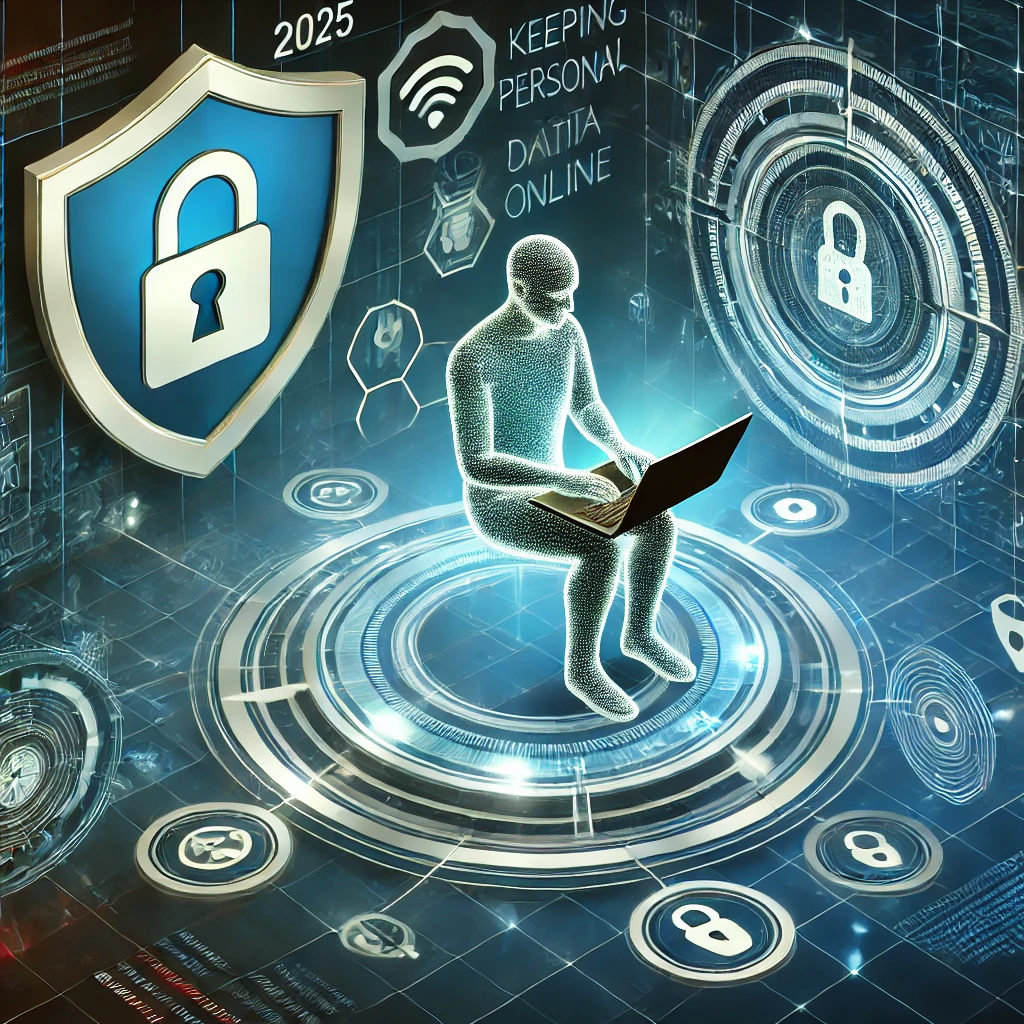
How to Keep Your Personal Data Safe Online in 2025
Introduction: Why Personal Data Security Matters in 2025
In 2025, securing your personal data online is more important than ever. With new technologies and more people relying on the internet for work, entertainment, and communication, it's crucial to understand how to protect your information from cyber threats. From smartphones to laptops, there are a multitude of devices we use daily that store sensitive data, making it essential to follow best practices for online safety.
Top Ways to Protect Personal Data Online
1. Use Strong, Unique Passwords
One of the most basic yet vital steps in securing your data is using strong, unique passwords. Avoid the temptation to reuse passwords across multiple sites. A password manager can help you create and store complex passwords for every account.
2. Enable Two-Factor Authentication (2FA)
Two-factor authentication (2FA) adds an extra layer of security by requiring a second form of identification, such as a code sent to your phone. This makes it much harder for hackers to gain access to your accounts.
3. Keep Software Updated
Whether it’s your smartphone, PC, or apps, always ensure your software is up to date. Updates often include security patches that protect you from vulnerabilities hackers can exploit.
4. Use Virtual Private Networks (VPNs)
VPNs are great tools for keeping your data secure when using public Wi-Fi. They encrypt your internet connection, making it more difficult for hackers to intercept your personal information.
Protecting Your Smartphone and Other Devices
5. Tips to Secure Your Smartphone
In today’s world, your smartphone is a goldmine of personal data. To secure it, set up a strong passcode, enable fingerprint recognition, and avoid downloading apps from unreliable sources.
6. Best Budget Smartphones of 2025
Looking for a smartphone that balances affordability and security? In 2025, several budget-friendly phones come with solid security features. Brands like Xiaomi, Realme, and Samsung offer great options.
Boosting Productivity and Securing Your Online Presence
7. AI Tools to Boost Productivity
AI tools have revolutionized productivity. Apps for productivity, like Google Workspace, Trello, and Asana, can help streamline your work, but remember to use strong security practices to protect your data.
8. Download Free Apps for Productivity
There are plenty of free apps available to boost your productivity. However, not all of them come with the best privacy practices. Always check the app permissions before downloading to avoid unnecessary data collection.
Optimizing Your Devices for Privacy and Performance
9. How to Speed Up Your Windows 11 PC
A slow PC is more than just frustrating—it can also expose you to security risks. By removing bloatware, managing startup apps, and optimizing system settings, you can improve both speed and security on your Windows 11 PC.
10. How to Optimize Your Laptop Battery Life
Optimizing your laptop's battery life doesn't just help you get more usage; it also reduces unnecessary strain on your system, improving its overall security and longevity.
Additional Security Tools for Online Privacy
11. Beginner’s Guide to Using VPNs
If you're new to VPNs, don’t worry. It’s simpler than it sounds. Start by selecting a trusted VPN provider and follow their setup instructions to enhance your online privacy.
12. Best Chrome Extensions for Students
Students, particularly, need reliable security tools. Chrome extensions like LastPass, uBlock Origin, and HTTPS Everywhere are all great choices for enhancing online security while studying.
13. Comparison of Noise-Canceling Headphones
While not directly related to data security, noise-canceling headphones can improve your focus, especially when you're working with sensitive data in public spaces. Ensure that your headphones are paired with a secure device.
Choosing the Right Tech for Your Needs
14. SSD vs. HDD: Which Is Better for You?
When choosing between an SSD and HDD, think about your data storage needs. SSDs are faster, more reliable, and more secure compared to HDDs. If security is your priority, an SSD is the way to go.
15. How to Choose a Laptop for Gaming
Gaming laptops require top-notch security features due to their constant online usage. Look for laptops with robust antivirus software, strong password protection, and VPN compatibility for optimal security.
Conclusion
As the digital world evolves, so do the threats to our personal data. By following the steps outlined above—such as using strong passwords, enabling two-factor authentication, and employing VPNs—you can safeguard your online privacy and enjoy the benefits of technology with confidence. Keep in mind that security is an ongoing process, so always stay updated on the latest tools and practices to keep your data safe in 2025.
Frequently Asked Questions (FAQs)
1. What is the best way to protect my personal data online?
Using strong passwords, enabling two-factor authentication, and utilizing a VPN are some of the best ways to protect your data online.
2. Are VPNs necessary for online security?
Yes! VPNs encrypt your internet connection, making it harder for hackers to access your personal information, especially on public Wi-Fi.
3. How can I speed up my PC without compromising security?
To speed up your PC, remove unnecessary software, update your operating system, and clean up your hard drive. This will improve performance without compromising security.
4. What are some good budget smartphones with security features?
Budget smartphones from brands like Xiaomi, Samsung, and Realme offer great security features, including fingerprint scanners and facial recognition.
5. How do I secure my smartphone?
Use strong passcodes, enable two-factor authentication, and only download apps from trusted sources to ensure your smartphone remains secure.